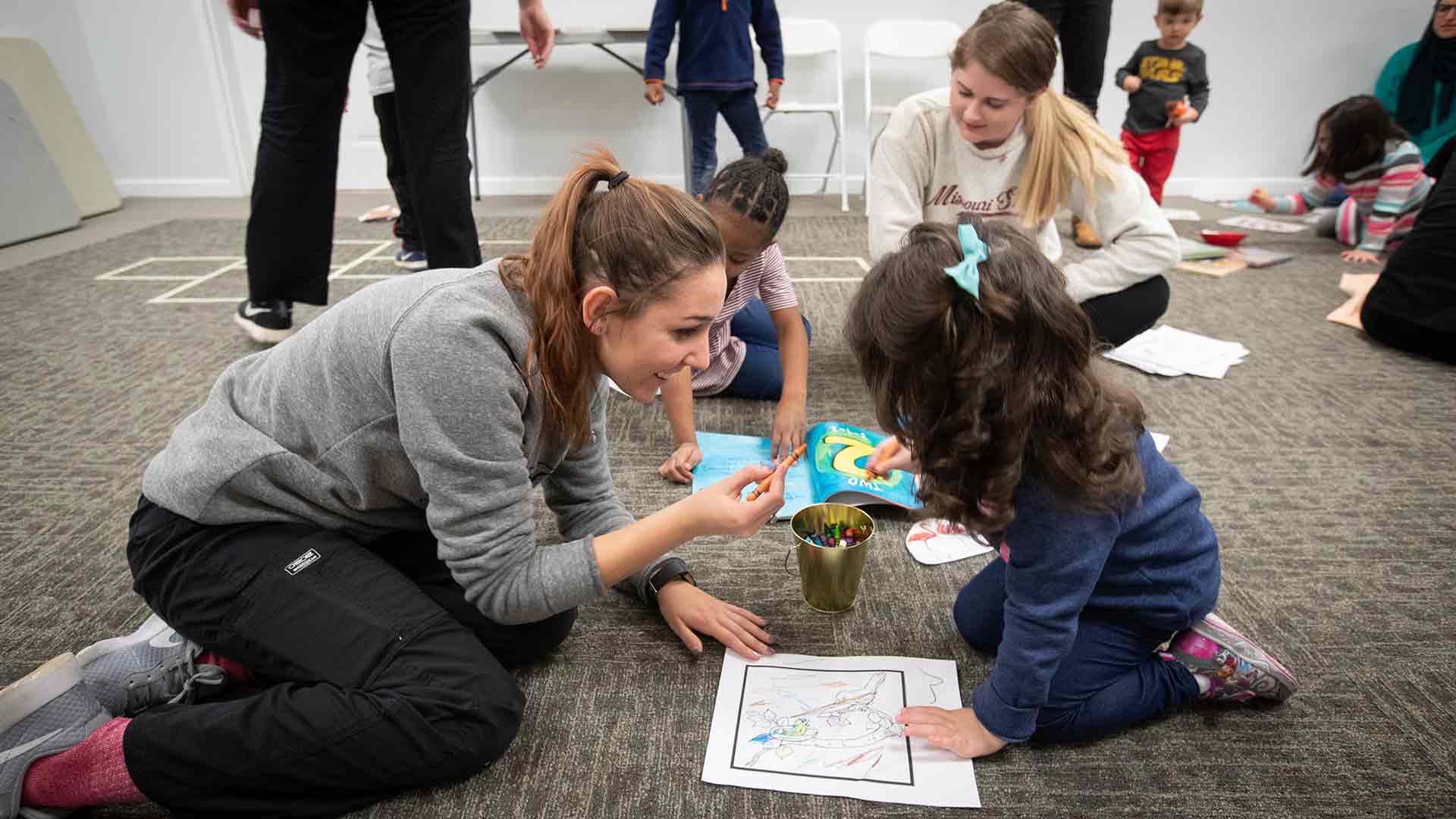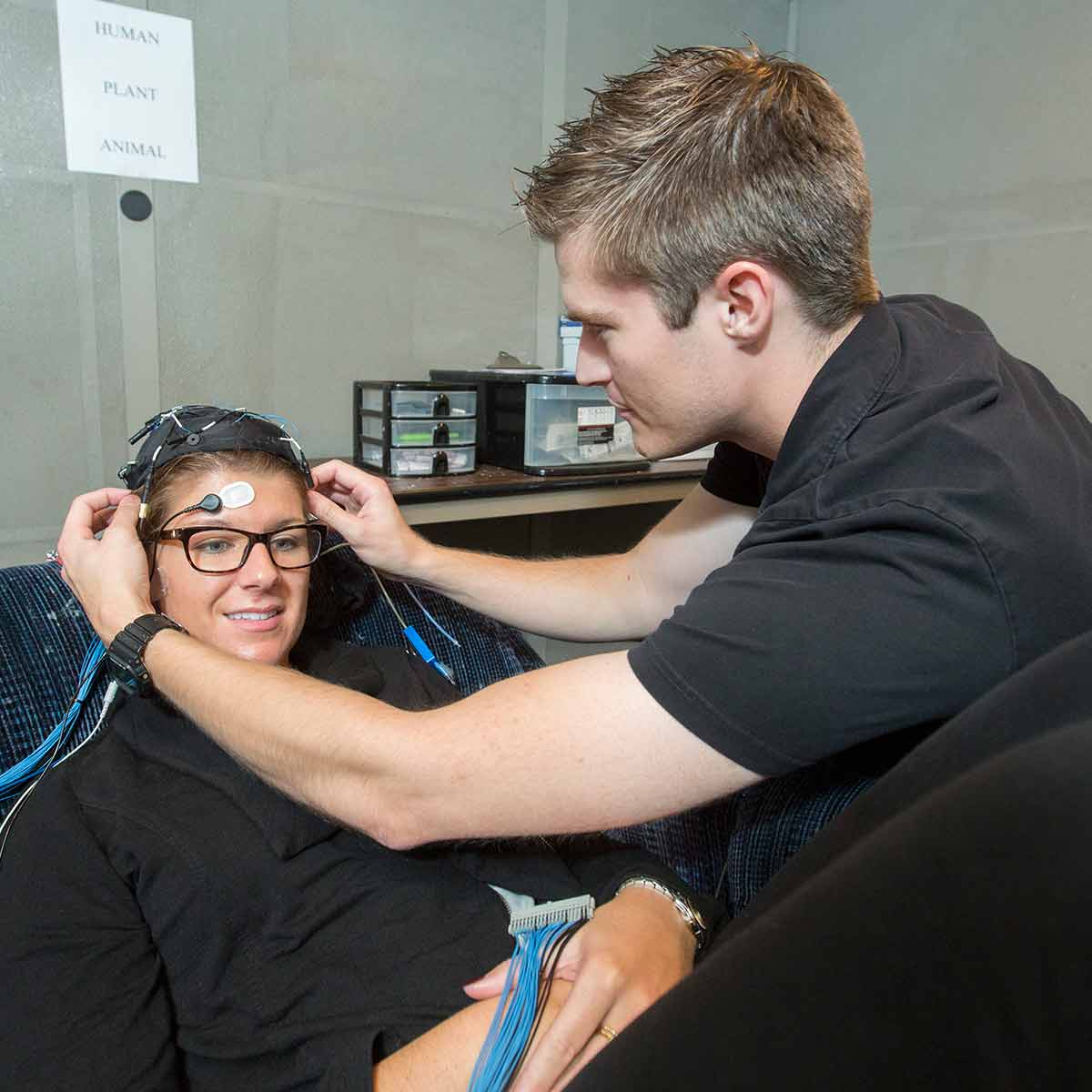Careers and Outcomes

Join the health care professionals who make communication accessible and achievable for everyone.
They work in communication sciences and disorders (CSD). Two main career fields within CSD are:
Speech-language pathology: Communication and swallowing care.
- Speech sounds
- Language and literacy
- Voice and speech flow
- Feeding and swallowing
Audiology: Hearing and balance care.
- Hearing loss
- Hearing aids or assistive technology
- Dizziness and balance
- Tinnitus (ringing in the ears)
The bachelor’s degree (major) in communication sciences and disorders is your gateway toward a career in speech-language patholoy or audiology. You're one step closer to making a difference in so many lives.
As a student, you'll explore evidenced-based research practices and learn communication and cognitive processes across the lifespan within a clinical context.
Helping you advance

Now hiring: Communication experts
Communication disorders affect millions of people around the world.
That means a growing job market for your services.
$79,000
21%
Where can you work in communication sciences and disorders?
In speech-language therapy or audiology, you’ll have many options for your workplace.
The most common settings include:
- Clinic and rehab centers
- Community centers
- Hospitals
- Private practices
- Schools
In many cases, you’ll work closely with other members of the health care team – people like doctors, psychologists, physicians, rehab counselors and educators.
While audiology and speech-language pathology are the most common, some CSD students go on to pursue other graduate programs (like occupational therapy) as well.
Career options with only a bachelor’s degree
Most CSD majors continue on to graduate school, but you’re not required to take that route.
You can enter the workforce with just your bachelor’s degree.
You can pursue supporting roles like:
- Speech-language pathologist assistant (SLPA)
- Audiologist assistant
- Rehab assistant
- Health care administration
- Vocational aide
You’ll have the soft skills to work in other fields (media, government), too – not just allied health care.
Some jobs, like an SLPA, require more training.